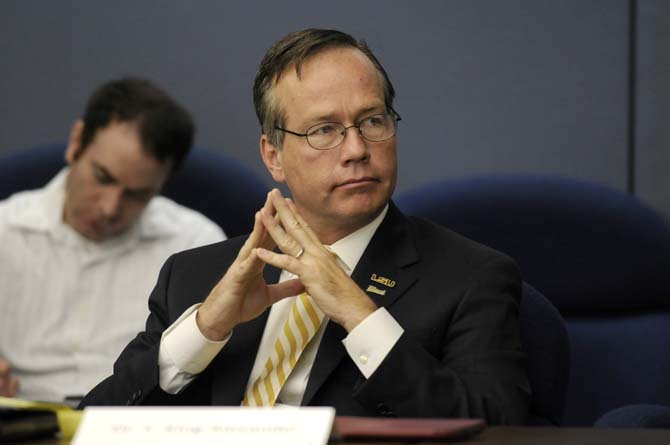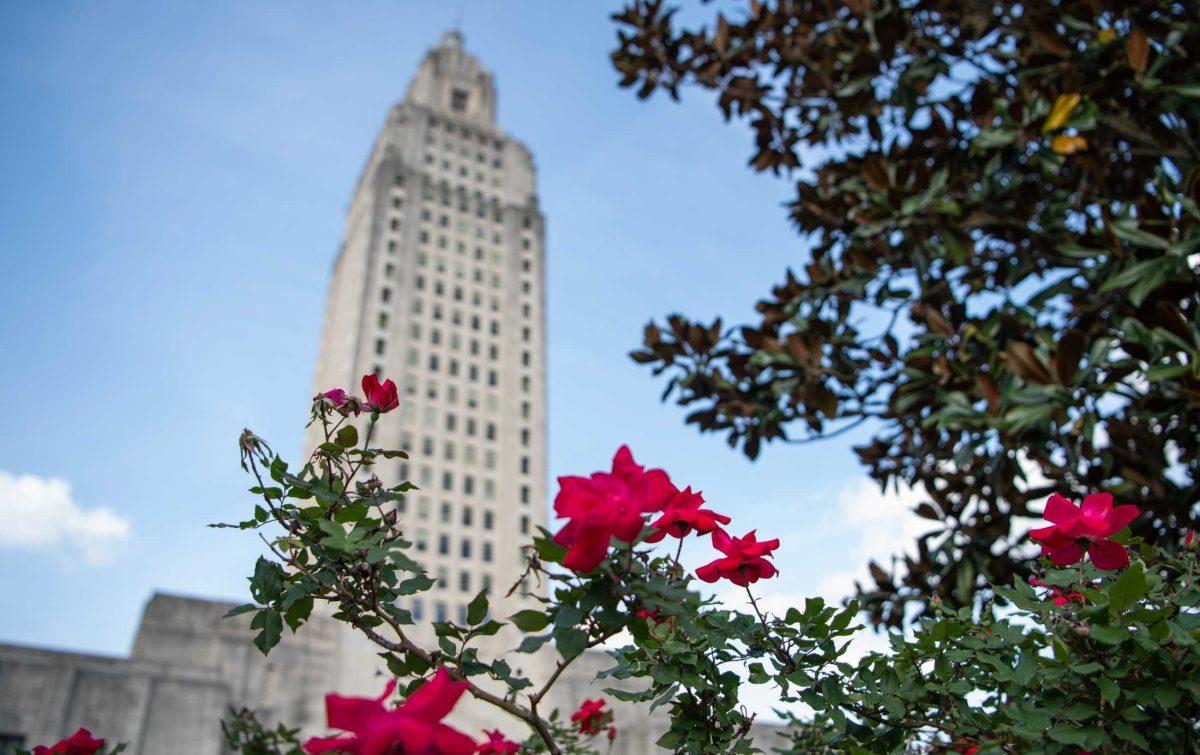While naming F. King Alexander as the LSU president was meant to bring stability to the University amid budgetary and administrative upheavals, his search process resulted in lawsuits regarding public records law.
Using LSU Foundation money, LSU contracted the Dallas-based private search firm R. William Funk and Associates to help find its new president after combining the system president and chancellor positions. But shortly after Alexander was named president-elect, The Daily Reveille Editor in Chief Andrea Gallo, The Advocate and NOLA.com | The Times-Picayune filed lawsuits to obtain the names of 35 finalists.
When the spring semester began in January, the 12-member Presidential Search Committee was also taking its first steps toward selecting a new University president.
A group of around 100 potential candidates was eventually narrowed down to 35. Of the 35, five were selected for interviews before two pulled themselves from the running.
Of the three candidates interviewed, Presidential Search Committee Chairman and Board member Blake Chatelain said Alexander stood out among the others as the clear choice for the position. The committee recommended him to the Board of Supervisors, which unanimously voted to hire him as the sole finalist March 27.
The Advocate and NOLA.com | The Times-Picayune were both represented by Lori Mince and had their first hearing April 25. Judge Janice Clark ruled in favor of the publications, ordering that the Board produce the records immediately.
Board of Supervisors Chairman Hank Danos said he plans to appeal Clark’s ruling and feels confident it will be reversed.
Despite Clark’s ruling, Gallo’s April 30 hearing did not have the same result.
Judge Tim Kelley, who heard Gallo’s suit, ruled in favor of the University and said only 10 candidates who had originally submitted their names for consideration, plus Alexander, would be considered applicants.
“I’m disappointed with Judge Kelley’s ruling, especially since it contradicts Judge Clark’s ruling from last week,” Gallo said after her hearing. “But I’m glad that I got my day in court and I’m still hopeful that the records will eventually become public based on Judge Clark’s ruling and my interpretation of public records law.”







